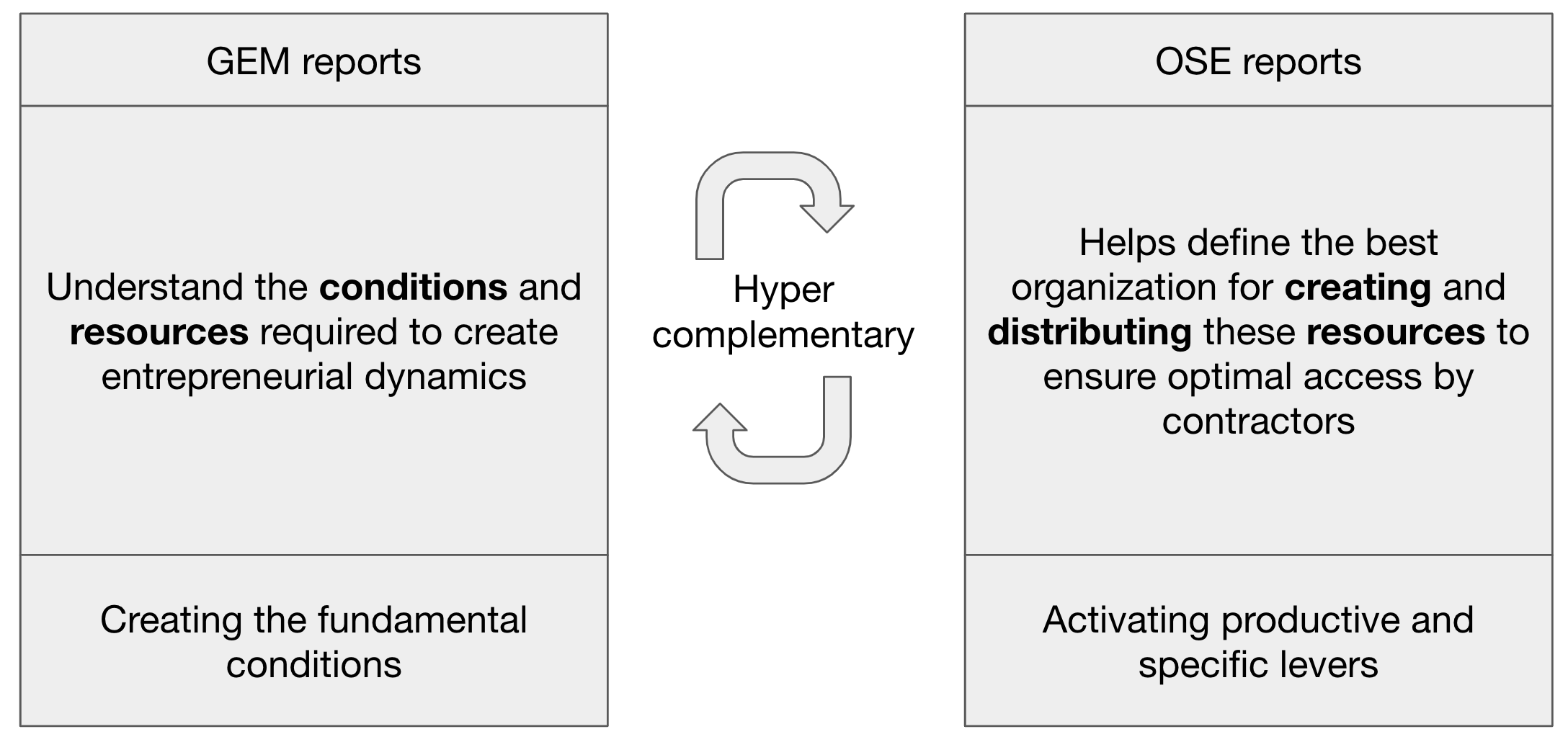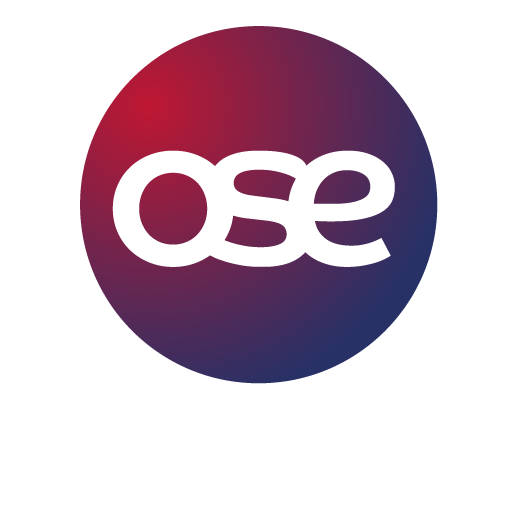OSE in Africa Conceptual Model
The Observatory of Support for Entrepreneurship (OSE) in Africa Conceptual Model is based on scientific research published in peer-reviewed journals as well as popular publications such as Harvard Business Review France® by the authors of this report and is based on the capture of big data on the internet using automated scraping techniques.
To that end, we will embark on an initial phase of identifying and qualifying key players in the targeted entrepreneurial ecosystem, using a variety of reference sources such as bilateral cooperation organizations, patronal conferences, professional associations, institutions, researchers, and universities. We were able to identify almost 1500 entrepreneurs in 19 African countries, making this the most comprehensive and exhaustive repository to date.
To enable our Observatory to provide its full value, we qualified the entire database of over 1500 actors by specifying the kind and role of each actor, using a consistent model of distribution of these types and roles. The following types of actors are listed: Schools, Universities, Training Centers, Incubators, Accelerators, Social Economy Actor, Co-Working Spaces, Startup Nurseries, Third Places, FabLabs, Cultural Space for Startups, Media with an Entrepreneurial Focus, Startup Event, Clusters, Competitivity poles, Business Angel Clubs, Venture Capital, National Institutions, International Institutions, Local Institutions, Banks.
Following the hexagonal model, each of these categories of actors has been assigned a key role: schools and universities, incubators, accelerators, practice support, private equity investors (VCs and business angels), and government actors.
As presented below, OSE in Africa present a cutting edge complementary tool to leverage efficient strategy to stimulate Entrepreneurship in Africa.
GEM reports |
OSE reports |
|
|---|---|---|
| Economic Datas |  |
 |
| Organizational Datas |  |
 |
| Managerial Datas |  |
 |
| Systematic Annual Datas |  |
 |
| Scientific Validity |  |
 |
| Useful for understanding economic and managerial factors to guide long-term public policies | Useful for understanding ecosystem organization and value chains, and implementing short & medium term strategies and tactics. |
Method of Research
The research methodology used by the Observatory of Support for Entrepreneurship (OSE) in Africa is based on both network theory and natural language processing (NLP). This method is novel; it had never been scientifically applied to entrepreneurial ecosystems prior to the authors of this study publishing in peer-reviewed journals in 2021. Furthermore, she has never been deployed in Africa in such a long-term and systematic manner as is the case here. Finally, no other research institute has conducted longitudinal and systematic studies in Africa, making the Observatoire des Sudiens à l’Entrepreneurship the world’s leading authority on entrepreneurial ecosystems in Africa.
The breadth and depth of our observations are unparalleled in the world, and the application of our method to these ecosystems creates the most accessible and mobilizable data set for analyzing the factors influencing entrepreneurship in Africa, as well as the most consistent set of recommendations in the world. In this section, we will go over the many components of these methods in order to make the results presented in this study more understandable.
A complementary Economic Intelligence tool

Call to Scientific Contribution
Your are a Scholar ? You have knowledge in African Entrepreneurship and Entrepreneurial Ecosystems ? You have strong skills in systematic data collection using R Studio and Python ? Your have advanced skills in Data Science, Natural Language Processing or Topic Modeling ? Your are welcome, please contact us !


Stay In Touch